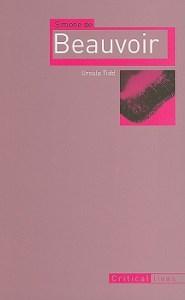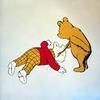 I absolutely loved this study of one of the twentieth century’s most brilliant and famous women writers and activists. It is the single most trenchant and insightful of the intellectual biographical studies of de Beauvoir.
I absolutely loved this study of one of the twentieth century’s most brilliant and famous women writers and activists. It is the single most trenchant and insightful of the intellectual biographical studies of de Beauvoir.
Nothing of value in de Beauvoir’s life is overlooked. Context and circumstances are fully considered and the widest range of resources and key relationships are thought through (the influence of her parents, sister, lovers, besides that of the works of intellectual writers and philosophers such as Levis-Strauss, Hegel, Heidegger, Aquinas, Marx, Husserl, Leibniz, Kant, and the existential phenomenologists, among others).
Tidd also sheds light on some of the influences on her growing sense of intersectional feminism and the lesser known yet critical influences for her magnum opus on women, The Second Sex, by reference, for example, to her strong interest in Gunnar Myrdal’s classic 1944 study American Dilemma, on race in America.
She doesn’t shy away from the complex and often troubling relationship Beauvoir had with Sartre: namely the ways in which it was supportive of each other, while often exploiting the affection of other lovers and writing about them and betraying their lovers’ confidences to each other.
Importantly, she quotes well from all Beauvoir’s work, so you get to appreciate her strengths as a memoirist, diarist, philosopher, essayist and polemicist, novelist, travel and letter writer, feminist and political activist.
I’ve read the full-length biographies by Deirdre Blair and Toril Moi, and this short study says everything of value while missing nothing of significance.
The highest praise I can think of for a biography of a writer is to say that it excites and compels you to want to go and read or reread the writer’s work. This brilliant study merits that accolade.

